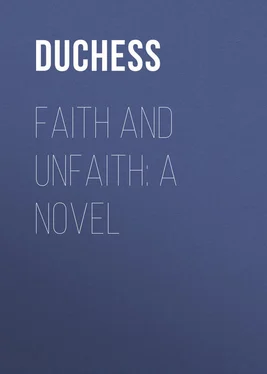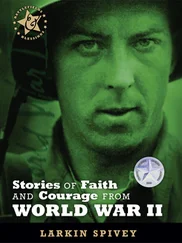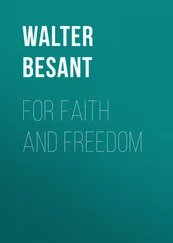Duchess - Faith and Unfaith - A Novel
Здесь есть возможность читать онлайн «Duchess - Faith and Unfaith - A Novel» — ознакомительный отрывок электронной книги совершенно бесплатно, а после прочтения отрывка купить полную версию. В некоторых случаях можно слушать аудио, скачать через торрент в формате fb2 и присутствует краткое содержание. Жанр: foreign_antique, foreign_prose, foreign_sf, на английском языке. Описание произведения, (предисловие) а так же отзывы посетителей доступны на портале библиотеки ЛибКат.
- Название:Faith and Unfaith: A Novel
- Автор:
- Жанр:
- Год:неизвестен
- ISBN:нет данных
- Рейтинг книги:3 / 5. Голосов: 1
-
Избранное:Добавить в избранное
- Отзывы:
-
Ваша оценка:
- 60
- 1
- 2
- 3
- 4
- 5
Faith and Unfaith: A Novel: краткое содержание, описание и аннотация
Предлагаем к чтению аннотацию, описание, краткое содержание или предисловие (зависит от того, что написал сам автор книги «Faith and Unfaith: A Novel»). Если вы не нашли необходимую информацию о книге — напишите в комментариях, мы постараемся отыскать её.
Faith and Unfaith: A Novel — читать онлайн ознакомительный отрывок
Ниже представлен текст книги, разбитый по страницам. Система сохранения места последней прочитанной страницы, позволяет с удобством читать онлайн бесплатно книгу «Faith and Unfaith: A Novel», без необходимости каждый раз заново искать на чём Вы остановились. Поставьте закладку, и сможете в любой момент перейти на страницу, на которой закончили чтение.
Интервал:
Закладка:
"Yes; to marry somebody," he repeats, wistfully, "that will be best, – to get some good man, some kindly, loving heart to protect you and make a safe shelter for you. There is comfort in the thought. But I hope it will be soon, my darling, before your spirit is broken and your youth dulled."
"I shall marry as soon as ever I can," says Georgie, making a last terrible effort to appear hopeful and resigned. "I shall meet some one very soon, no doubt, – very soon: so do not fret about me any more. Why should I not, indeed? I am very pretty, am I not, papa?" In spite of the lightness of her words, a heavy choking sob escapes her as she finishes her little set speech. She buries her face in the bed-clothes, to stifle her rising grief, but her father is almost too far gone to notice it.
"Yes, – so like your mother," he mutters, somewhat thickly, clutching aimlessly at the quilt. "Poor Alice! – poor girl! It was that day on the beach, when the waves were dancing, and the sun – or was it? – Did the old man ever forgive – ?"
He is wandering, dreaming his death-dream of happier days, going back, even as he sinks into everlasting sleep, to the gilded hours of youth.
The girl presses his hand to rouse him.
"Think of me now," she entreats, despairingly; "it will only be for a little while, – such a little while, – and then you will be with her forever. Oh, papa! my dear, my dear; smile at me once again. Think of me happily; let me feel when you are gone that your last hours with me were peaceful."
His eyes meet hers, and he smiles tenderly. Gently she slips her arms round him, and, laying her golden head upon the pillow, close to him, presses her lips to his, – the soft warm lips, that contrast so painfully with those pale cold other ones they touch. So she remains for a long time, kissing him softly every now and again, and thinking hopelessly of the end.
She neither sighs, nor weeps, nor makes any outward sign of anguish. Unlike most people, she has realized to its fullest the awfulness of this thing that is about to befall her. And the knowledge has paralyzed her senses, rendering her dull with misery, and tearless.
Presently the white lids, weary with nights of watching, droop. Her breath comes more evenly. Her head sinks more heavily against the pillow, and, like a child worn out with grief and pain, she sleeps.
When next she wakes, gray dawn is everywhere. The wind still moans unceasingly. Still the rain-drops patter against the panes. She raises her head affrightedly, and, springing to his feet, bends with bated breath above the quiet form lying on the bed.
Alas! alas! what change is here? He has not moved; no faintest alteration can be traced in the calm pose of the figure that lies just as she last saw it, when sleep o'er came her. The eyes are closed; the tender smile – the last fond smile – still lingers on his lips; yet, he is dead!
The poor child stands gazing down upon him with parted lips and clasped hands, and a face almost as ashen as that marble one to which her eyes grow with a horror unspeakable. He looks so peaceful – so much as though he merely sleeps – that for one mad moment she tries not to believe the truth. Yet she knows it is death, unmistakable and relentless, upon which for the first time she looks.
He is gone, forever! without another kiss, or smile, or farewell word beyond those last uttered. He had set out upon his journey alone, had passed into the other happier land, in the cold silence of the night, even while she slept, – had been torn from her, whilst yet her fond arms encircled him.
Impelled by some indefinable desire, she lays her fingers softly on the hand that lies outside the coverlet. The awful chill that meets her touch seems to reach even to her heart. Throwing her arms above her head, with a wild passionate cry, she falls forward, and lies senseless across the lifeless body.
Misery hurts, but it rarely kills; and broken hearts are out of fashion. All this unhappiness came to Georgie Broughton about a year ago, and though brain-fever followed upon it, attacking her with vicious force, and almost handing her over as a victim to the greedy grave, yet she had survived, and overcome death, and returned from the land of shadows, weakened, indeed, but with life before her.
Months passed before she could summon up sufficient energy to plan or think about a possible future. All this time her aunt Elizabeth had clothed and fed and sheltered her, but unwillingly. Indeed, so grudgingly had she dealt out her measure of "brotherly love" that the girl writhed beneath it, and pined, with a passionate longing, for the day that should see her freed from a dependence that had become unspeakably bitter to her.
To-day, sitting in her little room, – an apartment high up in Aunt Elizabeth's house, – she tells herself she will hesitate no longer, that she is strong now, quite strong, and able to face the world. She holds up her delicate little hand between her eyes and the window, as a test of her returning strength, only to find she can almost see the light through it, – so thin, so fragile, has it grown. But she will not be disheartened; and, drawing pen and paper towards her, she tries to write.
But it is a difficult task, and her head is strangely heavy, and her words will not come to her. A vague feeling, too, that her letter will be unsuccessful, that her friend will fail her, distresses and damps her power to explain her position clearly.
Who can say if Clarissa Peyton will be the same at heart as when last they parted, with many words of good will and affection, and eyes dark with tears?
Grief and misery, and too much of Aunt Elizabeth, have already embittered and generated distrust in her young bosom. She is tired, too. All day she has toiled, has worked religiously, and gone through wearying household labor, trying to repay in some faint wise the reluctant hospitality extended to her. At this moment a sense of utter desolation overpowers her, and with a brain on fire, and a heart half broken, she pushes from her the partly-written letter, and, burying her face in her arms, breaks into low but heavy weeping.
"Papa! papa!" she sobs, miserably. It is the common refrain of all her sorrowful dirges, – the sadder that no response ever comes to the lonely cry. Of our dead, if we would believe them happy we must also believe that they have forgotten us; else how (when we think on our bleeding hearts) could they keep their bliss so perfect?
Mournfully as Mariana in her moated grange, the poor child laments, while sobs shake her slender frame. And the day dies, and the sun goes down, and happily some noise in the house – a step, a voice – arouses her, and, starting as though from some ugly dream, she takes up her pen again, and writes eagerly, and without premeditation, to the one friend in whom she still puts faith.
CHAPTER VII
"Life has rising ills." – Dyer.
"Papa, papa," says Miss Peyton, impatiently, without eliciting any response.
It is half-past ten, and breakfast is on the table! So are two little white pigeons, who have flown in through the open window, and are sitting, one on Clarissa's shoulder, the other on the edge of the table, picking crumbs out of her plate. The sun is streaming hotly in, the breath of flowers floating faintly in his train. A bowl of roses, half opened and filled with the dew of early morning, lies near Clarissa's plate. Upon the window-sill, outside, another little pigeon, brown-tinged and timid, stands peeping shyly in, envying his bolder brothers, and longing for the pretty coaxing voice of his mistress that shall make him brave to enter.
But to-day the welcome summons does not come. Miss Peyton has an open letter in her hand, the contents of which have plainly disturbed and interested her to an unusual degree; so that the little bird, whose pretty brown plumage is being transformed by the sun into richest bronze, grows each moment more dejected. Not for him the crumbs and the "flesh pots of Egypt."
Читать дальшеИнтервал:
Закладка:
Похожие книги на «Faith and Unfaith: A Novel»
Представляем Вашему вниманию похожие книги на «Faith and Unfaith: A Novel» списком для выбора. Мы отобрали схожую по названию и смыслу литературу в надежде предоставить читателям больше вариантов отыскать новые, интересные, ещё непрочитанные произведения.
Обсуждение, отзывы о книге «Faith and Unfaith: A Novel» и просто собственные мнения читателей. Оставьте ваши комментарии, напишите, что Вы думаете о произведении, его смысле или главных героях. Укажите что конкретно понравилось, а что нет, и почему Вы так считаете.






![Дональд Уэстлейк - Enough [A Travesty (novel) and Ordo (novelette)]](/books/416846/donald-uestlejk-enough-a-travesty-novel-and-or-thumb.webp)





